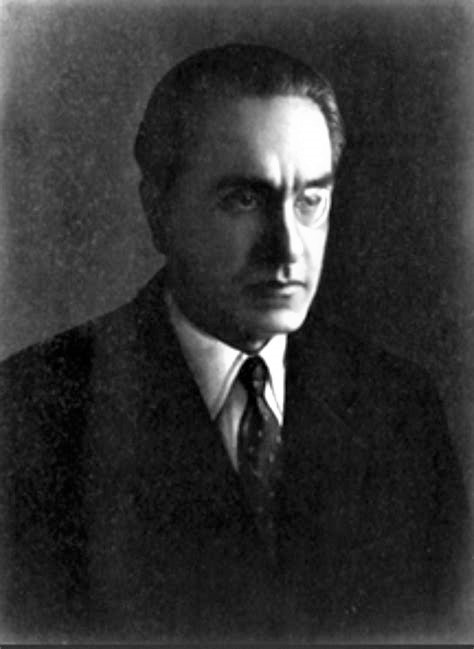
Julius Evola
Giulio Cesare Andrea "Julius" Evola (Italian: [ˈɛːvola];[1] 19 May 1898 – 11 June 1974) was an Italian far-right philosopher. Evola regarded his values as aristocratic, monarchist, masculine, traditionalist, heroic, and defiantly reactionary. An eccentric thinker in Fascist Italy,[2] he also had ties to Nazi Germany;[3] in the post-war era, he was an ideological mentor of the Italian neo-fascist and militant Right.[4]
Julius Evola
Evola was born in Rome. He served as an artillery officer in the First World War.[5] He became a Dada artist but gave up painting in his twenties. He said he considered suicide until he had a revelation while reading a Buddhist text.[6] In the 1920s he delved into the occult; he wrote on Western esotericism and of Eastern mysticism, developing his doctrine of "magical idealism".
His writings blend various ideas of German idealism, Eastern doctrines, traditionalism and the interwar Conservative Revolution,[7] with themes such as Hermeticism, the metaphysics of war and sex, Tantra, Hinduism, Buddhism, Taoism, mountaineering, the Holy Grail, civilisations, and decadence. Evola believed that mankind is living in the Kali Yuga, a Dark Age of unleashed materialistic appetites. To counter this and call in a primordial rebirth, Evola presented a "world of Tradition". Tradition for Evola was not Christian—he did not believe in God—but rather an eternal supernatural knowledge with values of authority, hierarchy, order, discipline and obedience.[8][9] According to scholar Franco Ferraresi, Evola's thought is one of the most consistently "antiegalitarian, antiliberal, antidemocratic, and antipopular systems in the twentieth century".[10] Writings by Evola contain misogyny,[11] racism,[12] antisemitism,[13] and attacks on Christianity and the Catholic Church.[14]
Evola advocated for Fascist Italy's racial laws,[13] and eventually became Italy's leading "racial philosopher".[15] Autobiographical remarks by Evola allude to his having worked for the Sicherheitsdienst, or SD, the intelligence agency of the SS and the Nazi Party.[16][17] He fled to Nazi Germany in 1943 when the Italian Fascist regime fell, but returned to Rome under the puppet Salò government to organize a radical-right group.[18][19][20][21] In 1945 in Vienna, a Soviet shell fragment paralysed him from the waist down.[22]
On trial in 1951, Evola denied being a fascist and instead referred to himself as "superfascista" (lit. 'superfascist'). Concerning this statement, historian Elisabetta Cassina Wolff wrote that "It is unclear whether this meant that Evola was placing himself above or beyond Fascism".[23] Evola has been called the "chief ideologue" of Italy's radical right after World War II.[24] He continues to influence contemporary traditionalist and neo-fascist movements.[25][26][27][28]
Personal life[edit]
Evola was childless and never married,[212] but as a young man he had a relationship with Sibilla Aleramo.[213] He spent his postwar years in his Rome apartment.[26] He died on 11 June 1974 in Rome from congestive heart failure.[214] His ashes, per his will, were deposited in a hole cut in a glacier on Monte Rosa in the Pennine Alps.[215]
Influence on the far-right[edit]
At one time Italian Fascist leader Benito Mussolini, the Nazi Grail seeker Otto Rahn, and the Romanian fascist sympathiser and religious historian Mircea Eliade admired Evola.[216][217][18] After World War II, Evola's writings continued to influence many European far-right political, racist and neo-fascist movements. He is widely translated in French, Spanish, partly in German, and mostly in Hungarian (the largest number of his translated works).[218] Franco Ferraresi described Evola in 1987 as "possibly the most important intellectual figure for the Radical Right in contemporary Europe" but "virtually known outside the Right".[177] He is described by Stanley Payne (in 1996) and Stephen Atkins (2004) as the leading neo-fascist intellectual in Europe until his death in 1974.[219][10] Giorgio Almirante referred to him as "our Marcuse—only better."[220] But outside Italy, France and Germany, Evola was not well known until around 1990 when he received wider English language publication, according to Furlong.[189]
Richard Drake wrote that Evola advocated for terrorism.[221] Peter Merkl noted that Evola's advocacy of force was part of his appeal to the radical right.[222] Wolff wrote: "The debate around his 'moral and political' responsibility for terrorist actions perpetrated by right-wing extremist groups in Italy between 1969 and 1980 began as soon as Evola died in 1974 and have not yet come to an end."[19]
According to one leader of the neofascist "black terrorist" Ordine Nuovo, "Our work since 1953 has been to transpose Evola's teachings into direct political action."[223] Franco Freda and Mario Tuti reprinted Evola's most militant texts.[224] Radicals of the Nuclei Armati Rivoluzionari (NAR) helped spread Evola's philosophy in far-right circles abroad after fleeing Italy in the wake of the terrorist bombing of the Bologna railway station in 1980; some influenced Britain's National Front.[225] Roberto Fiore and his colleagues in the early 1980s helped the National Front's "Political Soldiers" forge a militant elitist philosophy based on Evola's "most militant tract", The Aryan Doctrine of Battle and Victory. The Aryan Doctrine called for a "Great Holy War" that would be fought for spiritual renewal and fought in parallel to the physical "Little Holy War" against perceived enemies.[26]
Umberto Eco mocked Evola;[29] his 1995 essay "Ur-Fascism" referred to Evola as the "most influential theoretical source of the theories of the new Italian right", and as "one of the most respected fascist gurus".[226]
The far-right English politician and orator Jonathan Bowden gave lectures on Evola's philosophy.[227] The French far-right figure Alain de Benoist has cited Evola as an influence.[122]
Goodrick-Clarke noted Evola's pessimistic invocation of the Kali Yuga as an influence on esoteric Nazism and Aryan cults.[228]
Evola's Heidnischer Imperialismus (1933) was translated by the Russian radical-right Eurasianist Aleksandr Dugin in 1981.[229] Dugin has said that in his youth he was "deeply inspired" by Guénon's and Evola's Traditionalism.[230]
The Greek neo-Nazi party Golden Dawn includes his works on its suggested reading list, and the leader of Jobbik, the Hungarian nationalist party, admires Evola and wrote an introduction to his works.[216]
References to Evola are widespread in the alt-right movement.[122][231] Steve Bannon has called him an influence.[29]